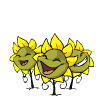User:Flutter/Help:Miscellany magic words


| Word | Example | Explanation |
|---|---|---|
| {{DISPLAYTITLE:xyz}} | [MW 1.7+] Set the page's title [1], enabled in Wikimedia projects since June 2007 ([2]). Also see {{h:mwg|AllowDisplayTitle}}. | |
| {{DIRMARK}} {{DIRECTIONMARK}} |
|
[MW1.7+] u+200E left to right or u+200D right to left mark |
| {{CONTENTLANGUAGE}} | en
|
[MW1.7+] code of the site's default interface language ({{h:mwg|LanguageCode}}) |
| {{DEFAULTSORT:xyz}} | {{DEFAULTSORT:xyz}} | [MW1.10+] Sets a default category sort key for the whole current page (also applying for category tags before this tag)[1]. |
| --~~~~ | --<insert name here> 06:21, 5 January 2008 (UTC)
|
Puts a signature on. |
| #REDIRECT | #REDIRECT [[target]]at top of source page |
Language-dependent word conversions[edit | edit source]
| Word | Example | Explanation |
|---|---|---|
| {{CURRENTMONTHNAMEGEN}} | February
|
Genitive form of month name used for Czech, Polish, Ukrainian[3] |
| {{grammar:case | word }} | {{grammar:7sg|Wikipedie}} on cs: is Wikipedií.
|
Derived word forms in inflected languages like Czech [4] |
| {{plural:count |form1 |form2 }} {{plural:count |1st | 2nd | 3rd }} |
{{plural: 2 | is | are }} outputs are{{plural: 1 | this | these }} outputs this{{plural: 0 | his | their }} outputs their
|
count 1 yields form1 (singular), plural transformations are used for languages like Russian [5] based on "count mod 10". |
"Grammar" and "Plural" are language-dependent functions, defined in [6], [7], etc. (note that in PHP, the modulo operator is the percent sign).
"Grammar" can either be applied to predefined words only, or to arbitrary words, depending on whether the definition is just a 2D array, or involves string manipulations. See also cs:Šablona:Wikivar/GRAMMAR.
"Plural" is a site-language-dependent switch function, controlled by function convertPlural in Language.php (which distinguishes between 1 and "not 1"), for some languages overridden in Languagexx.php, e.g. for French (which distinguishes between <=1 and >1) and Russian (oddly, first option is 1, 21, 31,.., 91, 101, 121, .., second is 2, 3, 4, 22, 23, 24, 31, 32, 33, 41,.., 94, 102, 103, 104,.., 122, 123,.., and else the third).
As opposed to ParserFunctions, "plural" accepts points and commas in numbers and interprets them in a site-language-specific way (depending on $separatorTransformTable in Messagesxx.php); on this site:
- {{plural:1.000|a|b|c}} gives a
- {{plural:1,000|a|b|c}} gives b
(on e.g. the German and the Dutch sites reversed w.r.t. the result on English sites).
"Plural" is used in various system messages, e.g. {{nmembers}}, where it uses interface language instead of site language.
- ↑ "Technology report", en-Wikipedia Signpost, January 2007